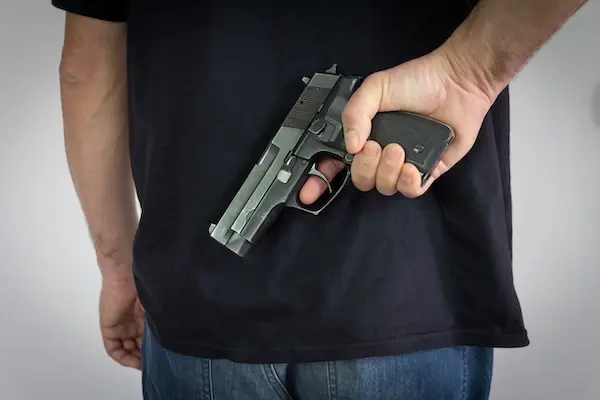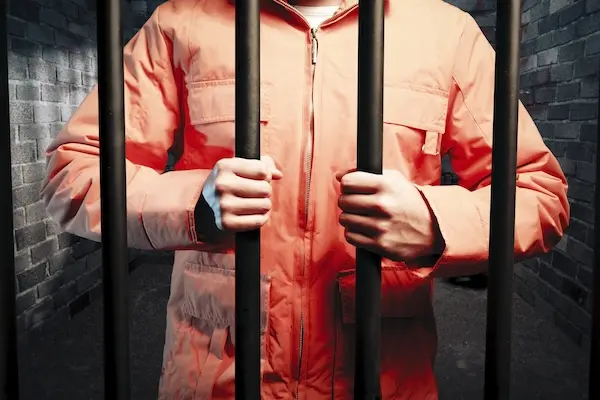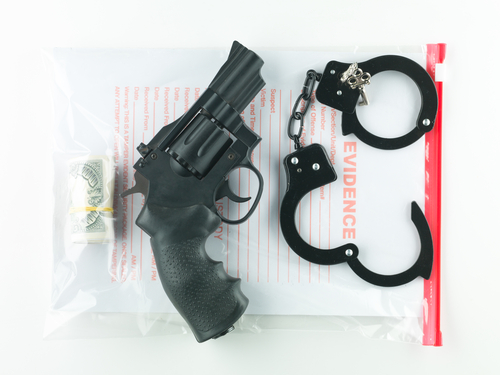The Consequences of Smuggling Firearms Across State Lines: A Deep Dive into Legal and Social Implications
In the United States, firearms play a significant role in both law enforcement and criminal activity. While law-abiding citizens have the right to own firearms for self-defense and sporting purposes, there is a dark side to this issue—firearm smuggling. Smuggling firearms across state lines has serious legal, social, and security implications. These illegal activities contribute to rising gun violence, organized crime, and the spread of illicit weapons that fuel violent crimes across the nation. At Cowboy Law Group, a trusted smuggling defense lawyer firm in Texas, we understand the gravity of such crimes and the devastating consequences they have on communities.
This blog will explore the consequences of smuggling firearms across state lines, from legal repercussions to the role of firearms trafficking in violent crimes. We’ll delve into the penalties for those involved, the legal landscape surrounding these activities, and how firearm smuggling impacts national and international security.
Understanding Firearms Smuggling and Its Mechanisms
What Is Smuggling Firearms?
Smuggling firearms refers to the illegal transportation or transfer of firearms, ammunition, or explosives across state lines or international borders. Unlike lawful transactions governed by strict regulations, smuggling firearms occurs outside the legal framework and typically involves individuals or organized criminal groups who evade law enforcement scrutiny. The movement of illegal trafficking usually occurs through various covert methods, such as concealed shipments, underground routes, and even through corrupt dealers within the legal system.
Firearms trafficking and gun trafficking are closely related terms and describe the illegal transfer of guns for use in criminal activities. These acts often take place between various criminal organizations, who rely on these weapons to fuel violence, drug trafficking, and other illicit operations.
Smuggling Routes and Tactics
Smuggling firearms across state lines or national borders is no simple task. Criminal groups use sophisticated methods to move guns undetected by authorities. Smuggling routes can vary, with traffickers using land, air, and sea routes to transport weapons. Guns are sometimes hidden in shipments of goods, in vehicles, or disassembled for easier transport.
One of the key factors that make firearms smuggling such a pressing issue is the involvement of organized crime and criminal organizations. These groups have established networks that can easily exploit weaknesses in law enforcement or border security. Additionally, firearms are often sourced from countries with looser regulations on gun sales, making them easier to acquire and transport illegally into the U.S. or across state lines.
Legal Implications of Smuggling Firearms
Federal Law and Firearms Regulation
The United States has strict regulations surrounding firearms, but those who attempt to smuggle firearms and violate federal law face serious legal consequences. The Bureau of Alcohol, Tobacco, Firearms, and Explosives (ATF) enforces laws governing the trafficking and movement of firearms across state lines. According to the Gun Control Act of 1968, it is illegal for individuals to transport firearms across state lines unless they comply with federal requirements, including background checks and appropriate licensing. This law regulates the movement of firearms and aims to reduce the risk of trafficked guns being used in violent crimes.
When individuals or organizations engage in firearms smuggling, they violate multiple provisions of federal law, making them subject to severe penalties. This includes potential criminal charges for possession, trafficking, and smuggling of firearms.
Penalties for Smuggling Firearms
Under federal law, penalties for smuggling firearms can be severe. Individuals found guilty of violating the Firearms Protocol or engaging in illegal movement of firearms across state lines can face years in federal prison, large fines, or both. Those who are caught selling guns illegally or working with gun dealers involved in trafficking may also be subject to further prosecution under federal statutes.
For example, individuals caught transporting firearms with the intent to sell them to criminals can face a sentence of up to 10 years in prison, depending on the specifics of the case. This is in addition to the mandatory minimum sentences for those caught smuggling illegal firearms. These sentences reflect the seriousness with which U.S. authorities treat the illegal movement of firearms across borders and state lines.
The Connection Between Firearms Smuggling and Violent Crimes
The Role of Firearms in Gun Violence
One of the most damaging consequences of smuggling firearms across state lines is the increased prevalence of gun violence. Smuggled firearms are often found in the hands of criminals who use them to commit violent crimes. According to the Small Arms Survey, a significant portion of crime guns used in homicides and other violent crimes come from illegal sources, many of which involve smuggling operations.
Firearm smuggling fuels violent crimes by providing criminals with easier access to weapons. Guns trafficked across state lines or internationally are often not subject to background checks or proper regulation, making it easier for dangerous individuals to obtain firearms. These crime guns contribute to a vicious cycle of violence that affects communities, leads to fatalities, and overwhelms law enforcement agencies.
The Role of Firearms in Criminal Enterprises
The illegal trafficking of firearms also plays a key role in the operations of criminal organizations and organized crime. These groups rely on smuggled weapons to carry out a variety of illegal activities, including drug trafficking, human trafficking, and extortion. The smuggling of weapons helps fuel these operations and enables organized crime groups to maintain control over illegal markets.
Additionally, firearms smuggling can provide weapons to violent extremist groups or militias involved in conflicts, destabilizing regions and exacerbating gun violence in war-torn areas.
The Broader Impact on National and International Security
National Security Threats
Beyond the immediate danger posed to public safety, smuggling firearms across state lines has significant implications for national security. The flow of guns into the hands of criminal organizations can undermine law enforcement efforts, destabilize local communities, and weaken public trust in the authorities’ ability to maintain law and order.
Criminal enterprises and transnational organized crime groups that rely on smuggled weapons also pose a national security threat. Their ability to move weapons across borders and evade detection by authorities can make it more difficult for security agencies to track illegal activity and maintain public safety. The continued smuggling of firearms could even contribute to the erosion of national security infrastructure, allowing criminal enterprises to operate more freely.
International Security and Global Efforts to Combat Smuggling
The illegal trafficking of firearms is not just a domestic issue. It is a global problem that has far-reaching consequences for international peace and security. The United Nations has recognized the threat posed by illegal firearms trafficking, and international agreements like the United Nations Firearms Protocol aim to curb the flow of illicit weapons across borders. The protocol promotes stricter regulations for the transfer of firearms and seeks to improve the coordination between countries to prevent smuggling.
Efforts to combat firearms trafficking are also being led by organizations such as the Global Initiative and the Graduate Institute in Geneva, which focus on reducing the spread of small arms and enhancing law enforcement cooperation at the global level.
Prevention and Enforcement Strategies
Strengthening Background Checks and Security Measures
A key step in curbing firearms smuggling is improving background checks and security measures to prevent illicit trafficking. One effective approach is enhancing the regulations on firearm sales and transfers. Ensuring that all transactions—whether through gun dealers or private sales—are subject to background checks would significantly reduce the chances of weapons falling into the wrong hands.
Strengthening the regulation of firearms manufacturers and dealers, along with ensuring that serial numbers are properly documented, can also help authorities trace weapons found at crime scenes and link them to illegal trafficking rings.
Role of Law Enforcement and Federal Agencies
Federal agencies, such as the ATF and the U.S. Department of Justice, play a pivotal role in investigating and prosecuting those involved in firearms trafficking and smuggling. By increasing resources for enforcement and strengthening interagency cooperation, law enforcement can better combat the illicit weapons trade and reduce the flow of smuggled firearms.
Frequently Asked Questions About the Consequences of Smuggling Firearms Across State Lines
What are the legal consequences of smuggling firearms across state lines in the U.S.?
Smuggling firearms across state lines is a federal offense that can lead to severe penalties, including long prison sentences and hefty fines. Under federal law, individuals caught transporting firearms without proper authorization or paperwork can face charges of illegal firearms trafficking or firearms smuggling.
The Bureau of Alcohol, Tobacco, Firearms, and Explosives (ATF) enforces these laws, and penalties may include up to 10 years in federal prison depending on the severity of the crime. These charges are typically classified as felonies, carrying significant consequences for both individuals and organizations involved in illicit gun trafficking.
How does firearms smuggling contribute to gun violence and violent crimes?
Firearms smuggling plays a critical role in fueling gun violence and violent crimes by providing criminals with easier access to illegal weapons. Many crime guns involved in shootings, robberies, and gang-related violence come from smuggling operations.
These trafficked guns are often sold without background checks, which means they end up in the hands of individuals who are prohibited from owning firearms. As a result, smuggling firearms accelerates the rate of violent crimes and gun violence in communities, contributing to an ongoing public safety crisis.
What is the role of organized crime in firearms trafficking and smuggling?
Organized crime plays a major role in the illegal movement of firearms across state lines. Criminal organizations involved in firearms trafficking often have established smuggling routes that allow them to bypass law enforcement and supply weapons to individuals or groups engaged in criminal activities.
These criminal enterprises use smuggling firearms to fuel various illicit operations, including drug trafficking, human trafficking, and violent crimes. By supplying guns to criminal organizations, smuggling firearms strengthens the power of these groups, making it more difficult for law enforcement to dismantle their operations.
How do federal agencies prevent the illegal movement of firearms across state lines?
Federal agencies, including the ATF and the U.S. Department of Justice, play a critical role in investigating and preventing the illegal movement of firearms. These agencies track smuggling routes, conduct undercover operations, and collaborate with state and local law enforcement to stop firearms smuggling.
Efforts are focused on tracing crime guns, regulating firearm dealers, and investigating potential connections to transnational organized crime that may be involved in trafficking. The enforcement of background checks and the proper documentation of firearm transactions also help prevent firearms from entering the black market.
How can I defend myself if I am charged with smuggling firearms across state lines?
If you are charged with smuggling firearms, you need a strong defense strategy. It’s essential to work with an experienced smuggling defense lawyer who understands the complexities of firearm laws and can challenge the evidence presented against you. Legal defenses may include proving lack of knowledge about the firearms’ illicit nature, showing that proper authorization or documentation was followed, or arguing that the evidence was improperly obtained.
At Cowboy Law Group, our skilled attorneys are committed to protecting your rights and providing a robust defense against charges of illegal trafficking, firearms smuggling, and organized crime involvement.
Facing Charges for Firearms Smuggling? Let Cowboy Law Group Defend Your Rights
If you’re accused of smuggling firearms across state lines, the legal consequences are severe. At Cowboy Law Group, we specialize in defending clients facing charges related to firearm trafficking, gun violence, and organized crime.
Our experienced attorneys understand the complexities of firearms laws and are dedicated to providing you with a strong defense.
Don’t face these charges alone—reach out to us today 832-326-2932 for a consultation and protect your future.
Contact Cowboy Law Group Now for a Free Consultation!









